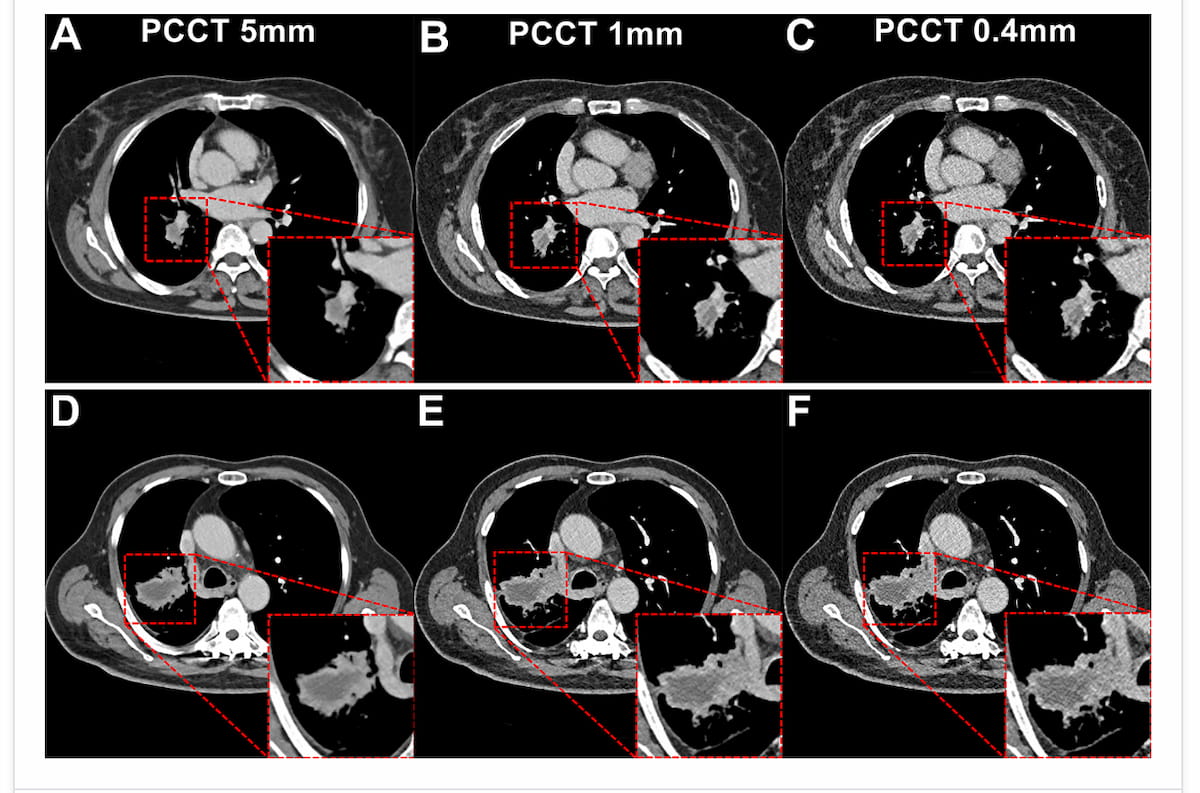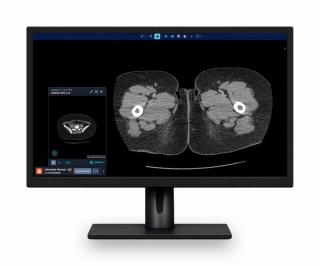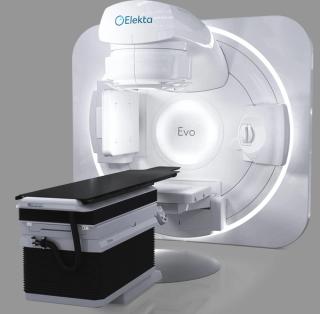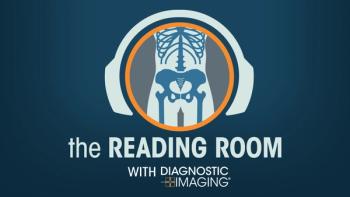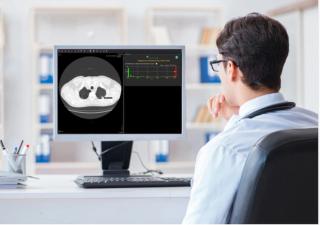
Oncology CT
Latest News
Latest Videos

Shorts

Podcasts
CME Content
More News

In a prospective comparison with prior criteria for evaluating hepatocellular carcinoma surveillance, the American Association for the Study of Liver Diseases (AASLD) version 2023 system offered significantly higher sensitivity.

Catch up on a variety of new FDA clearances in radiology from the past week.
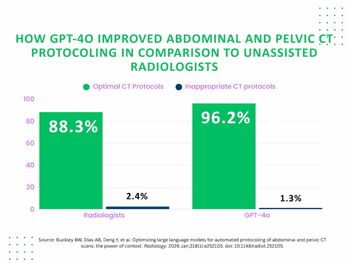
In a study involving over 1,400 patients who had abdominal or pelvic CTs, the large language model GPT-4o selected optimal protocols in 96.2 percent of cases in comparison to 88.3 percent for radiologists.

Catch up on the most popular radiology podcasts from 2025.

Catch up on the most well-viewed radiology content from 2025.
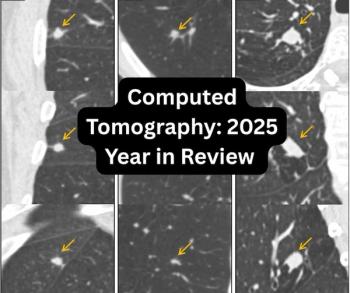
From controversial research on radiation-induced long-term cancer risks with computed tomography (CT) scans and the emerging prognostic value of AI-enabled plaque quantification to the potential impact of deep learning and AI-enhanced radiomics in thoracic radiology, here is a look back at the most well-viewed CT content from 2025.

Catch up on the top AI-related news and research in radiology over the past month.
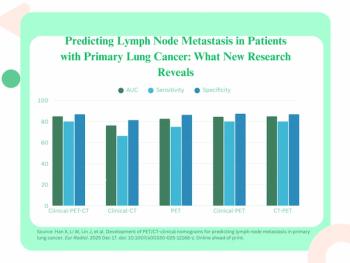
For patients with primary lung cancer, a nomogram incorporating PET, CT and clinical findings offered an 87.7 percent AUC for predicting lymph node metastasis and over a 19 percent higher sensitivity than a PET-based model for predicting small lymph node ( > 1 cm) metastasis.
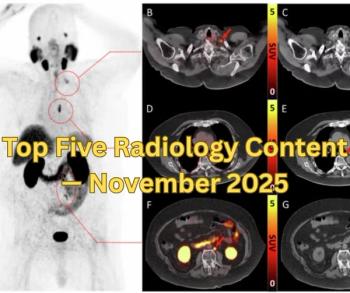
Catch up on the most-well viewed radiology content in November 2025.
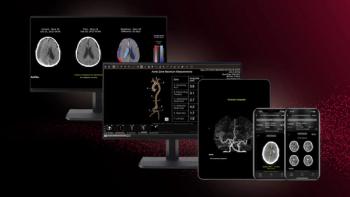
The new FDA 510(k) clearances for RapidAI include Rapid LMVO, which facilitates assessment of ischemic stroke, and Rapid MLS, which aids in the quantification of midline shifts with potential brain injuries.

Catch up on the top AI-related news and research in radiology over the past month.
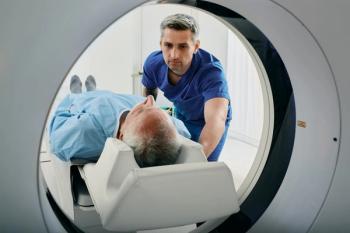
Comparing annual emergency department encounters that involved a head CT in 2007 and 2022, researchers noted a 51 percent increase and also found significant disparities in access to head CTs for Black patients, those on Medicaid and patients in rural hospital settings.
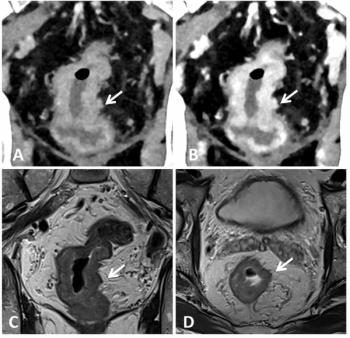
For T3-T4 rectal cancer staging, a new study showed that optimal photon-counting CT offered an AUC range between 80 and 86 percent in comparison to an AUC range between 78 and 88 percent for rectal MRI.
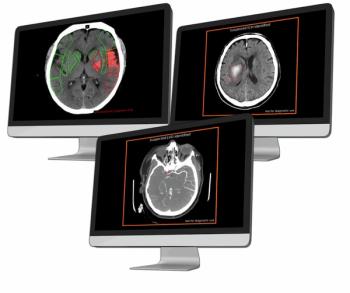
The launch of the AVI imaging platform reportedly facilitates direct integration into PACS and RS systems, and automated access to adjunctive CT-based AI applications for a variety of conditions including pulmonary embolism, intracranial hemorrhage and large vessel occlusion
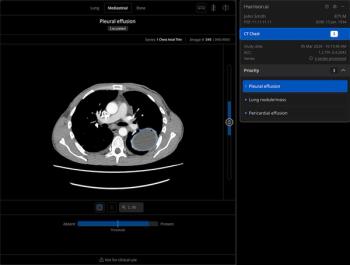
Offering a “safety net” in emergency and inpatient settings, the Chest CT software reportedly provides enhanced triage capabilities and adjunctive detection of 167 radiological features.
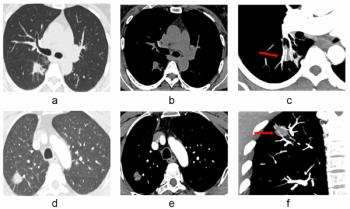
New research shows that incorporating the CT vascular sign into assessments of pulmonary nodules led to significant increases in specificity and accuracy as well as reduced false positive rates for differentiating between malignant and benign solid pulmonary nodules.
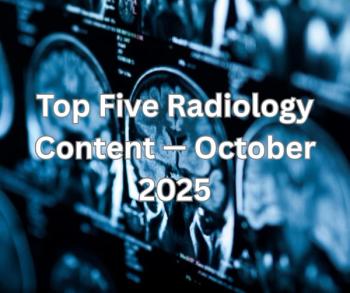
Catch up on the most-well viewed radiology content in October 2025.
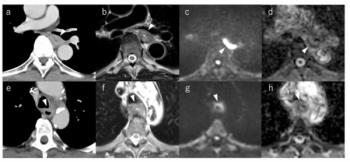
For patients with esophageal cancer, preoperative MRI demonstrated an average AUC above 94 percent for detecting tracheal invasion in contrast to an AUC range between 52.9 and 70.6 percent for CT, according to a recently published study.
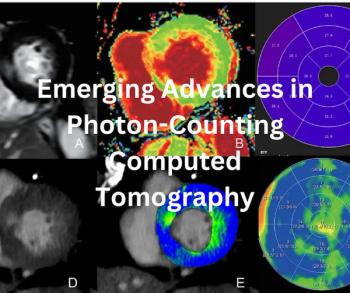
New research on photon-counting computed tomography in 2025 reveals increasing capabilities of the technology to enhance CT visualization and characterization with significant reductions in radiation dosing in cardiovascular imaging, abdominal imaging and other diagnostic applications.

Catch up on the top radiology content of the past week.

Catch up on the top AI-related news and research in radiology over the past month.
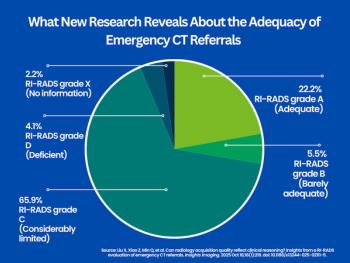
In a review of nearly 1,300 emergency referrals for computed tomography (CT) scans, approximately 28 percent were deemed to have adequate requisition quality according to a RI-RADS analysis.

Catch up on the top radiology content of the past week.

The AI-enabled LungQ® 4 software reportedly offers enhanced segmentation of peripheral airways and estimates of chronic perfusion deficits based on analysis of chest CT scans.
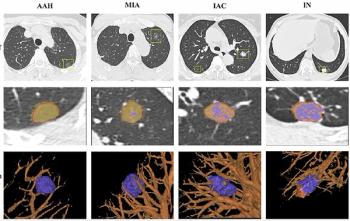
A deep learning AI platform, which incorporated radiomic features including CT attenuation metrics, demonstrated a 93.6 percent AUC for detecting invasive adenocarcinoma on chest CT.


